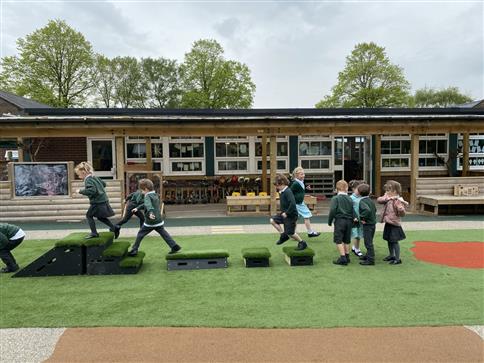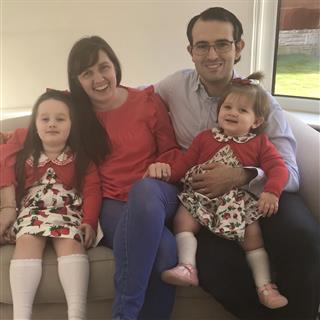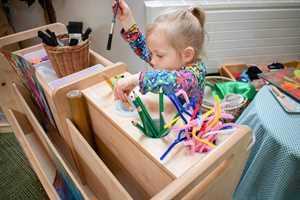Children's Health
How adults can support their children in play
Should I let my pupils play freely without restrictions? Should I step in with a solution? Shall I ask a question? Am I interrupting? I think as practitioners we often ask ourselves these questions. We feel as though we need to be constantly ‘doing’ something with our pupils whether making notes, suggesting ideas or providing structured play, often with specific targets at the back of our minds.
This blog will explore the important and varied role adults have when supporting children’s play.
The Importance of Recognising and Valuing Play
Time is a precious commodity to teachers and there never seems to be enough! However, when children are given sufficient time for play, they are often able to work things out, explore ideas and develop decision-making skills. I know at times I placed too much focus on the end goal rather than valuing the learning process.
If a child is absorbed in play which is clearly satisfying and rewarding, they certainly don’t want to be interrupted unnecessarily. Yet how many times are children called away from meaningful play to complete an adult-prescribed task?
Pupils can experience joy and deep learning through play, as they explore current interests, ask questions and extend their thinking. Children can concentrate for sustained periods and communicate well with others in order to sustain play. It is important for practitioners to engage with children during play and to bring playful elements to adult-directed activities.
How to Make Thinking Explicit
Through experience, I found that discussing and wondering about a problem together can really help children with their thinking processes.
If we make our own thinking and the thinking of pupils explicit by reflecting, thinking aloud and giving feedback, children learn how to learn. For example, if a child was trying to connect water channels together to fill a bucket but couldn’t manage to link the channels correctly it can be useful to ask them how they are getting on and crouch down to the child’s level.
Ask the child to explain their problem, watch and wait, repeat their thoughts back to them, ask a question and then talk about a possible solution that they may want to try. Showing a real interest in children’s play and providing them with some choices can really improve motivation and engagement.
Encourage Children to Question and Learn Alongside Each Other
Even young children can begin to self-regulate their own learning. They can develop a plan to achieve a specific task, monitor their performance and with support learn to reflect.
Asking probing questions rather than giving answers can be a really useful tool when extending play and opening children’s minds to new possibilities. Pupils should be allowed to develop their own lines of enquiry but practitioners should be ready to ask ‘I wonder what would happen if...’
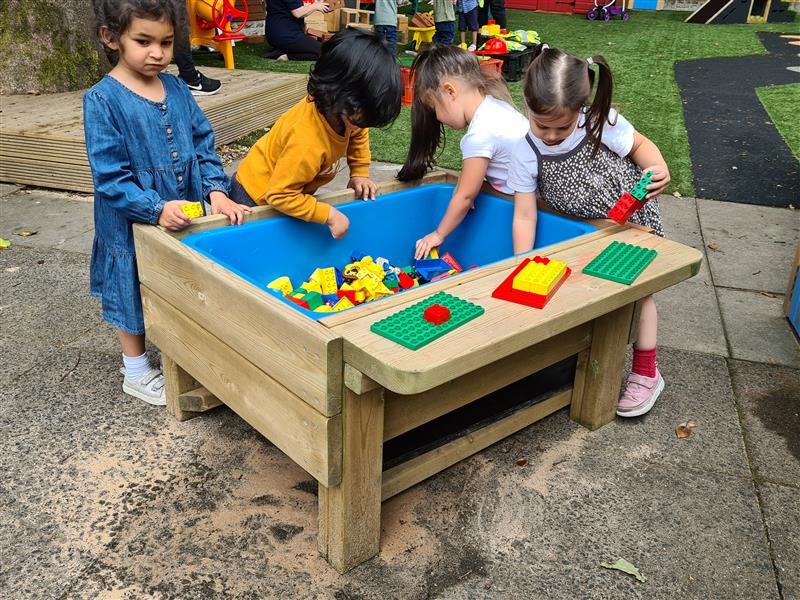
Children’s play doesn’t need to stop when an adult comes to join in, a teacher should be viewed as a co-explorer, remaining curious and enquiring. Pupils should not view an ‘adult’ as a person who has all of the answers and necessary knowledge.
Learners may start to feel that they will always be shown and told how something should be done whereas we want to develop a narrative together, solving problems and evaluating through a shared conversation. When we really listen to children and value their thoughts and ideas, we can guide them into deeper thinking and challenge them beyond their comfort zone.
Enter into the Spirit of Play
At times, adults need to enter into the spirit of play with their pupils. This allows the adult to facilitate, scaffold and support play in a way that is not possible from a distance. Sometimes we can find it hard to join in with imaginative play but when we do, we are able to show children that we respect and value what is important to them. We get to know our children better and understand their experiences. When we collaborate with our pupils, we build caring relationships by encouraging children to take risks, experience success and develop resilience.
Being a participant in play enables the adult to gently scaffold and hold play together for a child or a group of children. Children’s play can be fast-moving and dynamic both physically and imaginatively. An adult can help a child to engage by providing a set role, acting as a partner, modelling what is expected or providing a way for a child to stop play when they are ready.
I know from my two-year-old daughter that most young children want adults to take notice of their play. It’s simply not enough to watch them, they really want you to become an active participant. As a teacher, it is a privilege to be invited into a young person’s world of play, to see things from their perspective and to watch what happens. Fully immersing yourself in play can allow for greater observation and understanding at times, rather than standing back.
It is important when considering joining play: Will the children benefit if I step in? Do they want me to? Do they need me to? It is important to trust children’s play-making decisions and to be available and present without taking over.
Foster Communication Skills
Complex communication that occurs within the play can be challenging. Some pupils may need longer to fully absorb the meaning of others' words or may find it difficult to express themselves. Within the play, children use facial expressions, body language, verbal clues, sounds and actions to convey meaning.
Sometimes signals can be lost, and children may not pick up on or understand what a certain child is trying to communicate at the moment and this could lead to frustration. An adult can help children with communication difficulties to fully engage in play by expanding and giving more information for example in a role-play scenario: ‘The dentist has called for you. Are you ready to go in?’
An adult may need to repeat information such as, ‘Tim thinks this piece could go there. Shall we try it? Often simplifying and slowing down can help, for example, if a group of children are suggesting many things to make in the mud kitchen for a party. ‘They would like some cakes for the party. Shall we make those?
When teachers narrate and describe what is going on in play, without interrupting or directing it, we can help to introduce new and interesting words as we describe what we see.
Positive interactions between adults and children make a big difference to how well communication and language skills develop. Children benefit from playing with enthusiastic adults who show interest in talking with them. By playing amongst a group of children, adults are able to encourage them to express their views and thoughts, to value each other’s opinions and to show respect.
Child-Led Play and Learning
Child-led learning allows pupils to show independence and initiative when given the freedom to select how they play. Children can be highly motivated which leads to increased concentration and perseverance.
Pupils can set their own goals and challenges which can be enhanced by adult support if needed. An effective practitioner learns to follow a child’s lead and their first role will be to observe.
• What is the child actually doing?
• How are they feeling/expressing themselves?
• What are they interacting with?
• How is the child developing?
It may be appropriate for an adult to watch and wait before deciding to interact. At first glance, it may appear that a child needs support but sometimes when you really observe, a child may be repeating something familiar or consolidating learning.
Depending on the situation and the desired objectives, an adult should adapt their role accordingly.
Through observation, teachers can get more information about children’s play and themes that interest them. Practitioners can observe which areas and resources interest children the most, the complexity of play and how social skills are developed, the roles the children take, the duration of play and how pupils communicate with each other.
Playful Adult-Led Activities
Adult-led activities introduce new knowledge, skills or ideas. An idea may be developed further or skill could be practised. Perhaps pupils are revisiting learning or taking their learning to a deeper level with teacher support.
Practitioners will present these activities in a way that reflects a playful approach. Imaginative, hands-on resources can be used and pupils will be able to make choices and express their ideas. A good idea is to leave out resources introduced in adult-led activities for the children to freely explore. Children will be able to further practise or extend their skills which reinforces learning.
Creating the Right Environment for Play
A crucial role for practitioners is to provide opportunities for children to choose between well-planned, varied learning activities. Practitioners will be able to provide the right mix between child-led play and playful adult-led opportunities.
Product Spotlight
Teachers are skilled at examining and arranging their play spaces. Physical spaces are arranged to support the development needs of the class and the objectives set for them. We must support pupils as they take risks in their play, trusting their decisions and allowing them to set appropriate challenges.
Children need plenty of opportunities to explore, observe and recreate experiences, freely choosing resources to enhance their play. Interesting objects can be provided that children can explore in their own way without adult interruption.
There should be spaces for children to take part in group and solitary play. Play schemas that the children are presenting may be considered and there should be opportunity for children to return to the same activity.
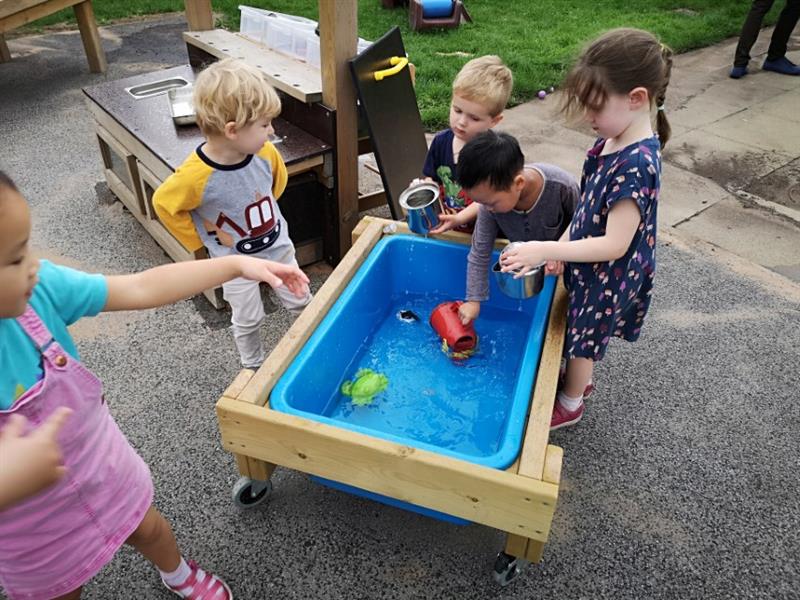
The role of an adult in play is an important and varied one. Often changing from communicator, caregiver, facilitator and observer. It is our job to really listen to a child, to develop trust, help to overcome difficulties, show a genuine interest and take time to build meaningful relationships. Teachers are extremely flexible in their roles, when children are happy and engrossed in play, plans can be changed and play can continue and be enhanced over several days.
Sometimes a practitioner’s role is to observe play, to give a smile or a nod. We may set the scene for play or make suggestions. At times we are a co-player, modelling skills and positive interactions and sometimes we direct play to focus on specific learning opportunities. When children have difficulty getting started or play begins to waiver we can enrich and extend ideas, giving direct suggestions or demonstrations.
Warm, positive relationships play a major role in children’s development and level of confidence. Taking the time to become play partners with our classes is extremely valuable. It is through skilled interactions with practitioners that really help to inspire children, to ensure progress and learning to move forward.



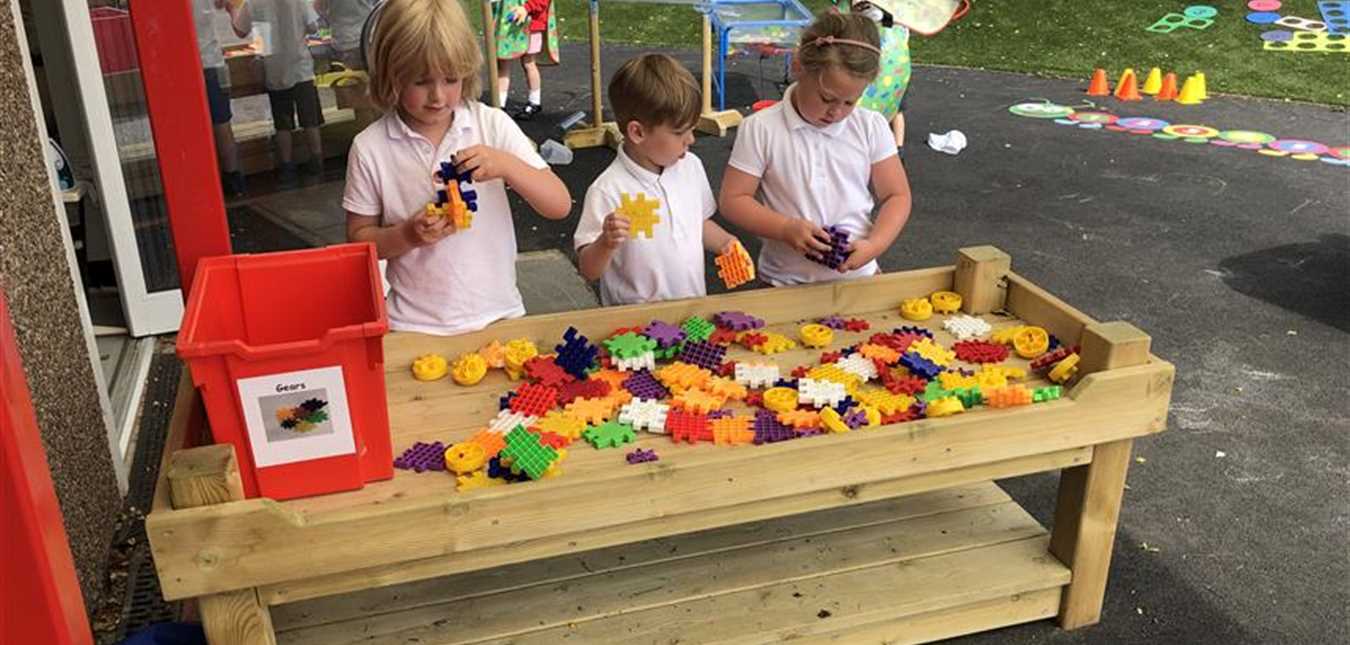
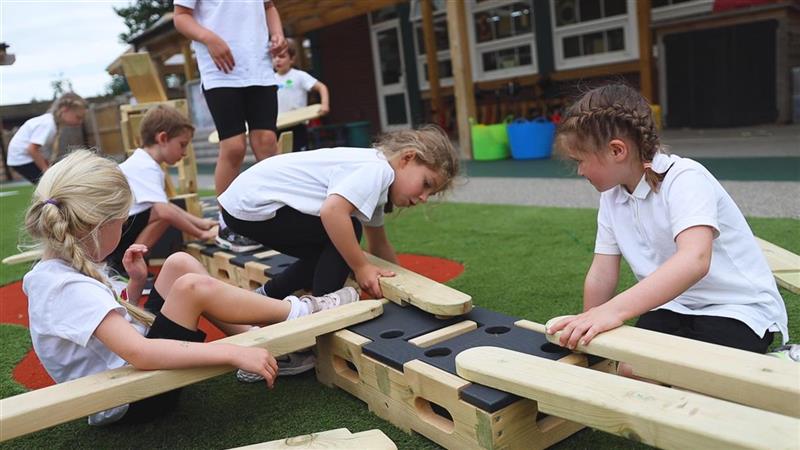
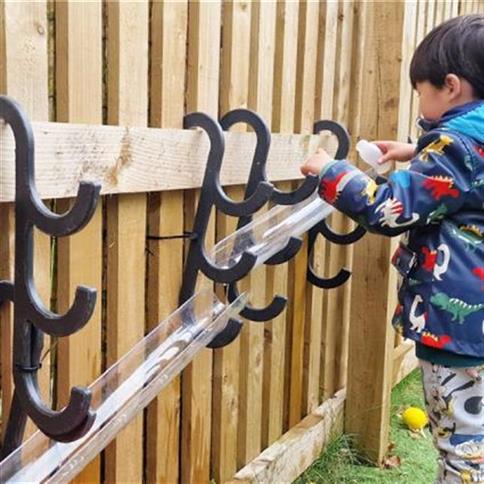
 web.png)
